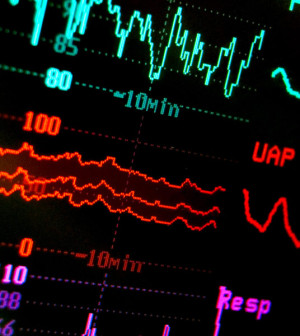- Could Your Grocery Store Meat Be Causing Recurring UTIs?
- Are You Making This Expensive Thermostat Error This Winter?
- Recognizing the Signs of Hypothyroidism
- 10 Strategies to Overcome Insomnia
- Could Artificial Sweeteners Be Aging the Brain Faster?
- Techniques for Soothing Your Nervous System
- Does the Water in Your House Smell Funny? Here’s Why
- Can a Daily Dose of Apple Cider Vinegar Actually Aid Weight Loss?
- 6 Health Beverages That Can Actually Spike Your Blood Sugar
- Treatment Options for Social Anxiety Disorder
Blood-Thinning Drug Savaysa Approved


The anti-clotting drug Savaysa (edoxaban) has been approved by the U.S. Food and Drug Administration to reduce the risk of stroke and prevent dangerous blood clots.
The drug was approved for people with an irregular heartbeat known as atrial fibrillation that isn’t caused by a heart valve problem, and for people with blood clots such as deep vein thrombosis or pulmonary embolism. Such clots can break away and travel to the brain and other parts of the body, the FDA said in a news release.
Clinical studies compared Savaysa to the anti-clotting drug warfarin. The newly-approved drug was found as effective as warfarin in preventing stroke-causing clots, but had significantly fewer cases of major bleeding episodes that can affect warfarin patients, the FDA said.
Nonetheless, bleeding was recorded as a primary side effect of Savaysa, as was anemia. Savaysa’s label will include a boxed warning that the drug may be less effective among people with certain characteristics of a kidney function predictor called creatinine. The advisory also warns that sudden discontinuation of Savaysa increases the risk of stroke.
Savaysa is made by the Japanese pharma firm Daiichi Sankyo, based in Tokyo.
Source: HealthDay
Copyright © 2026 HealthDay. All rights reserved.










